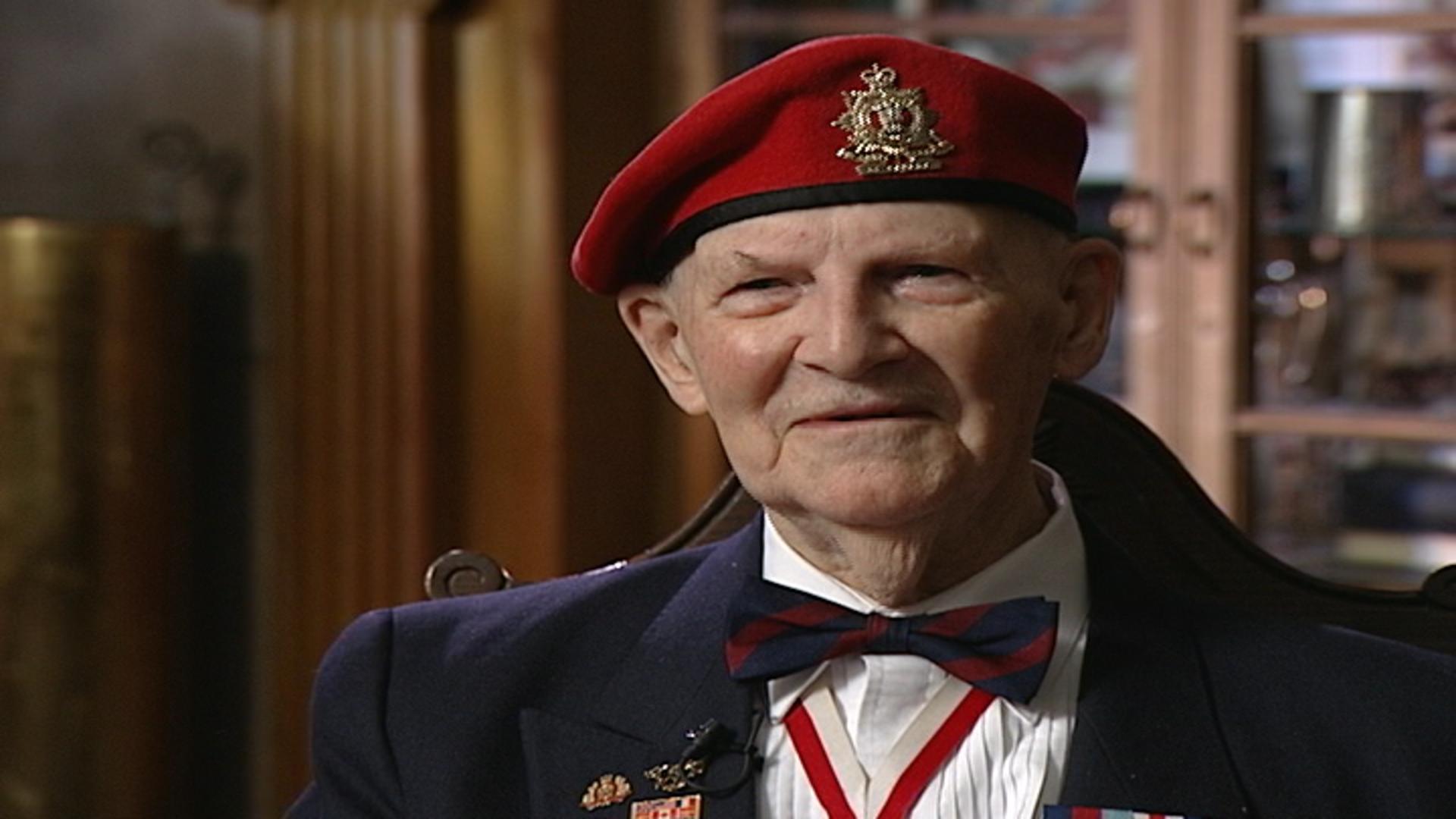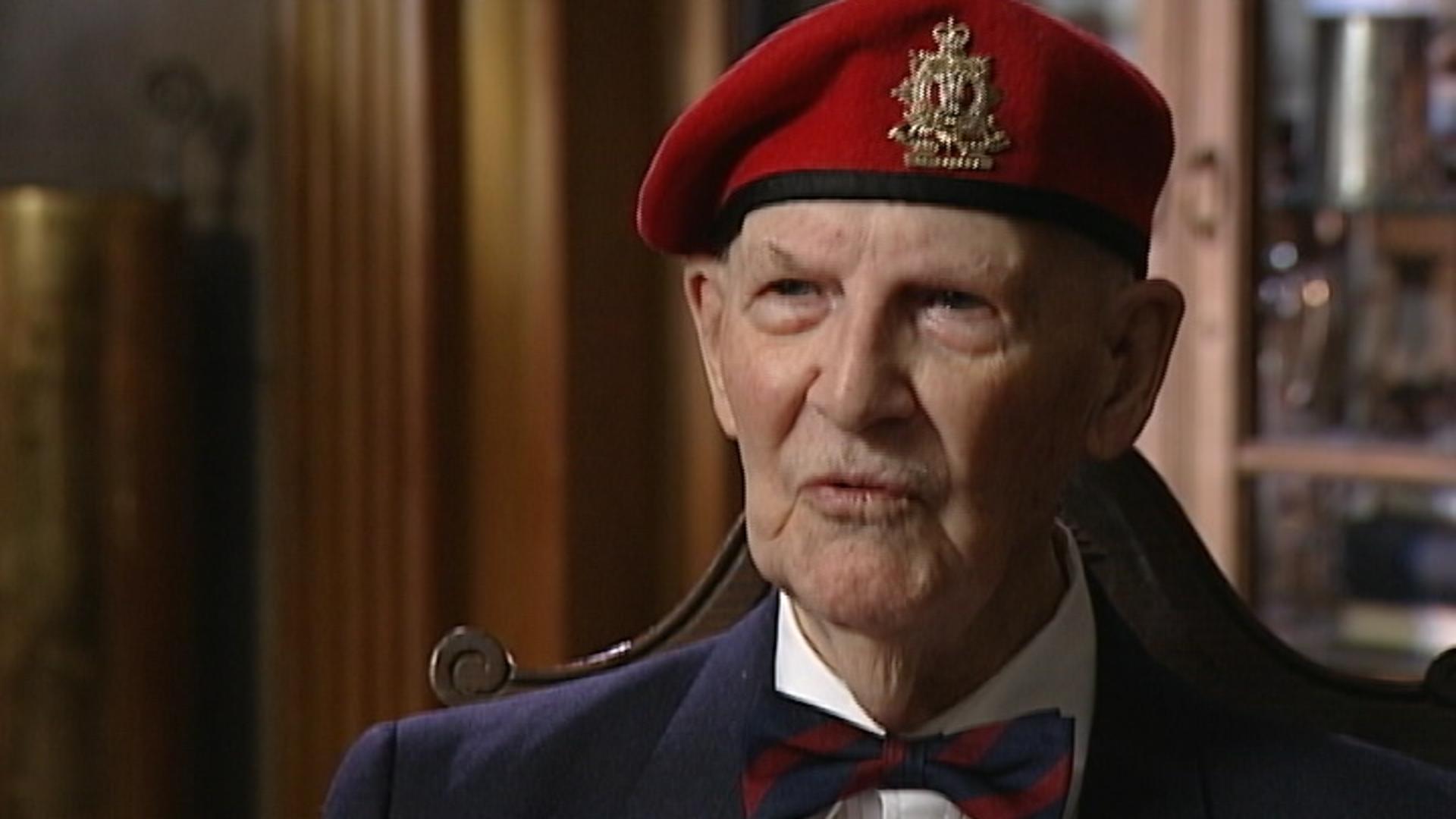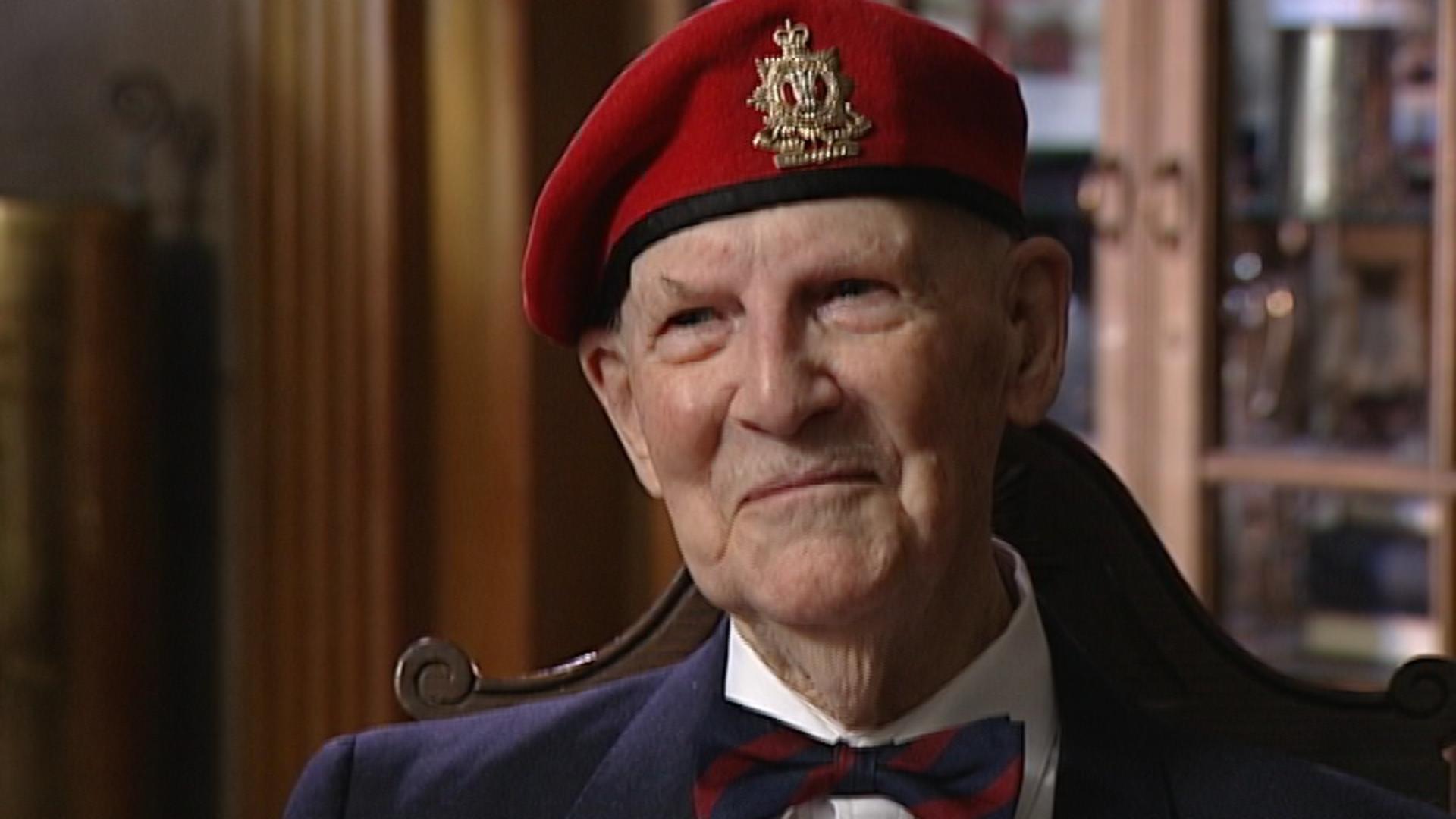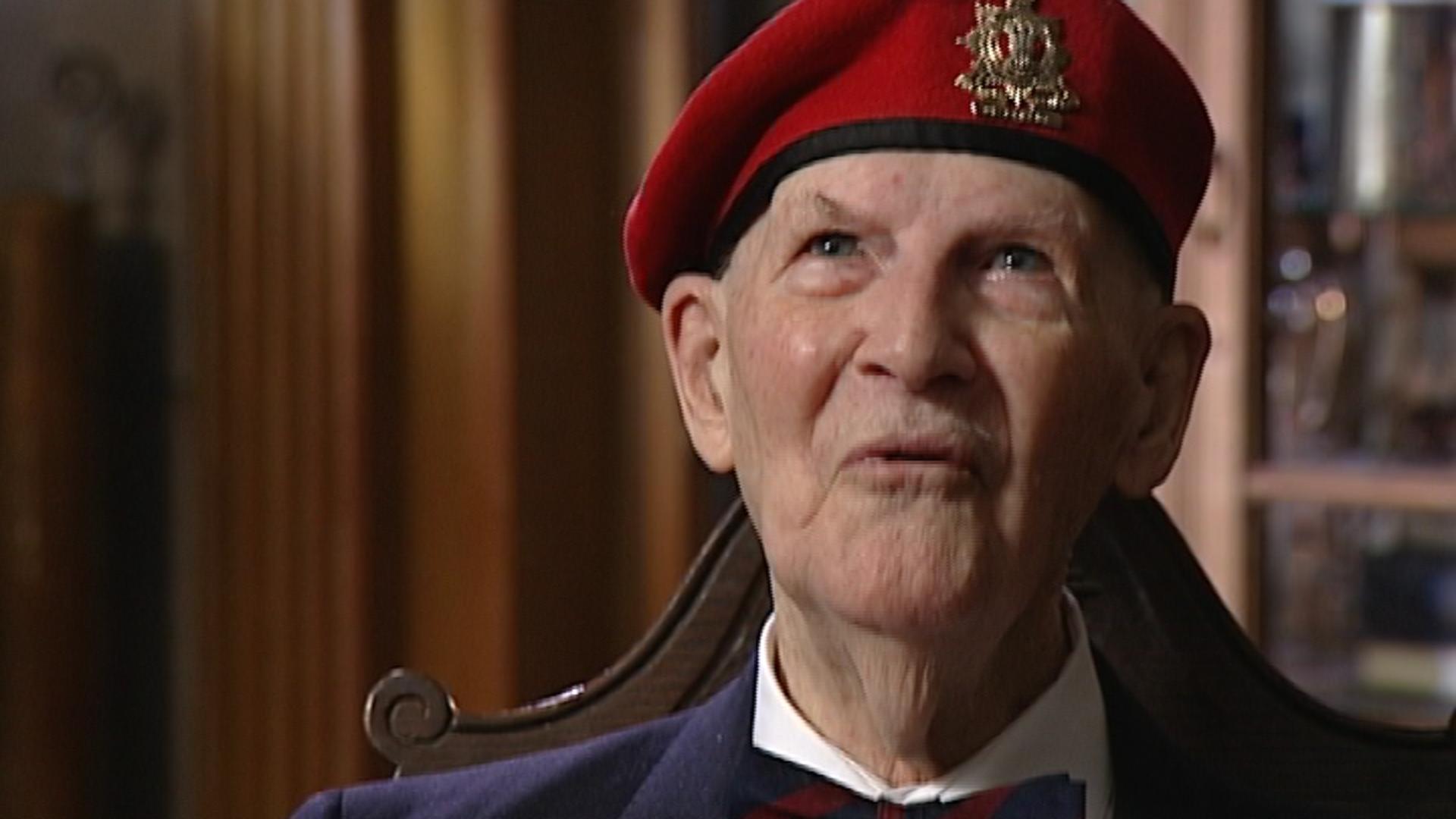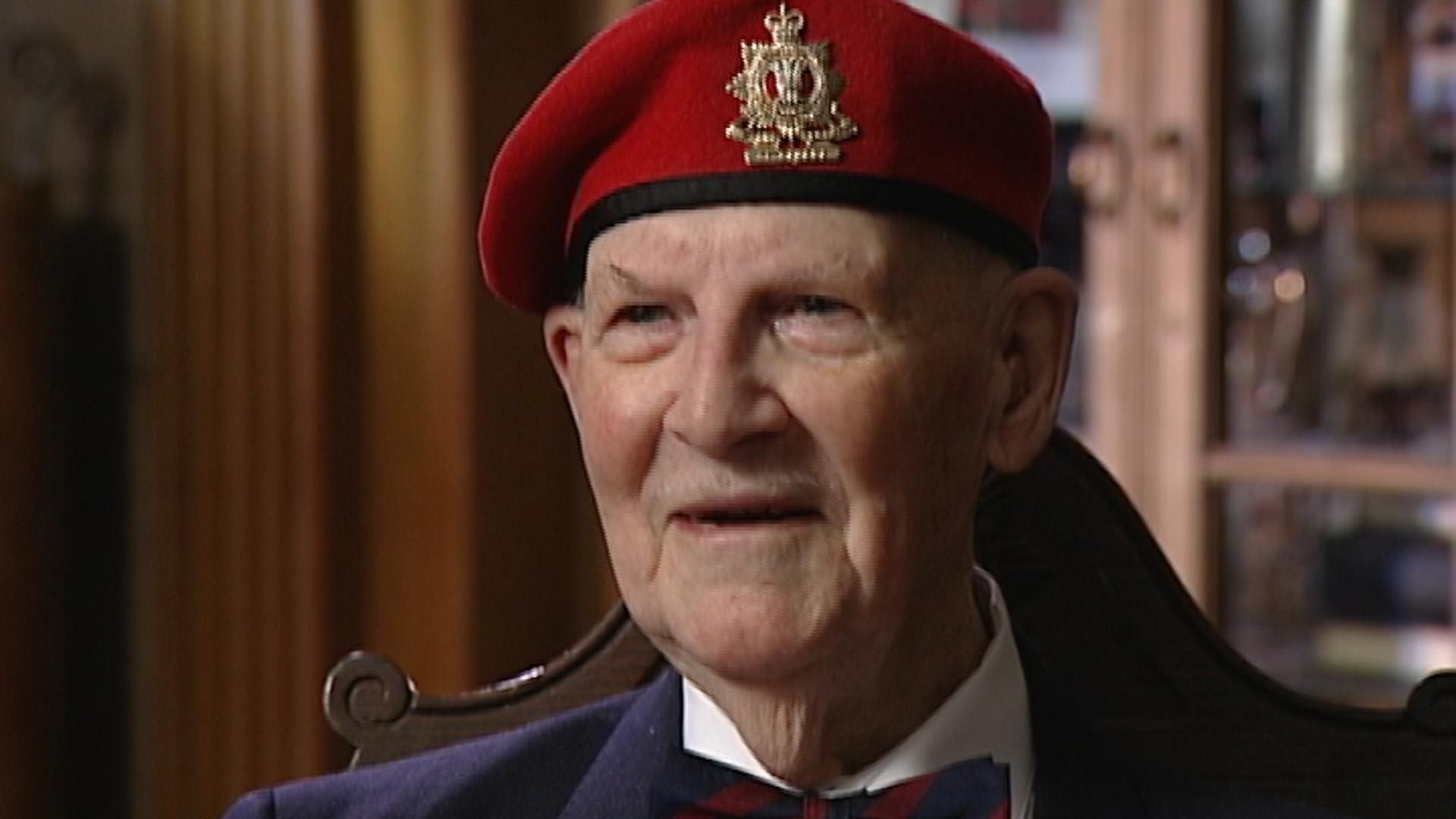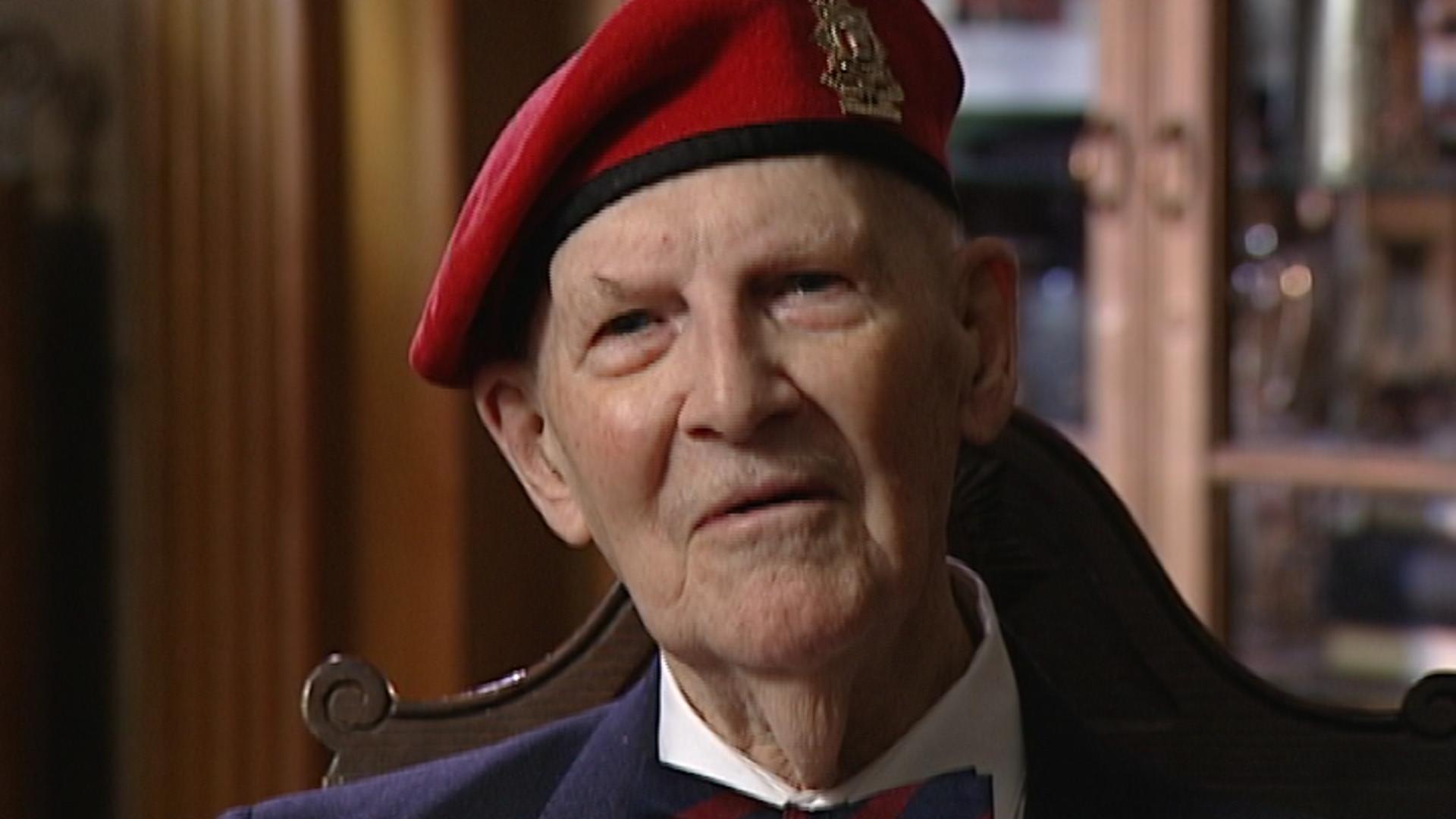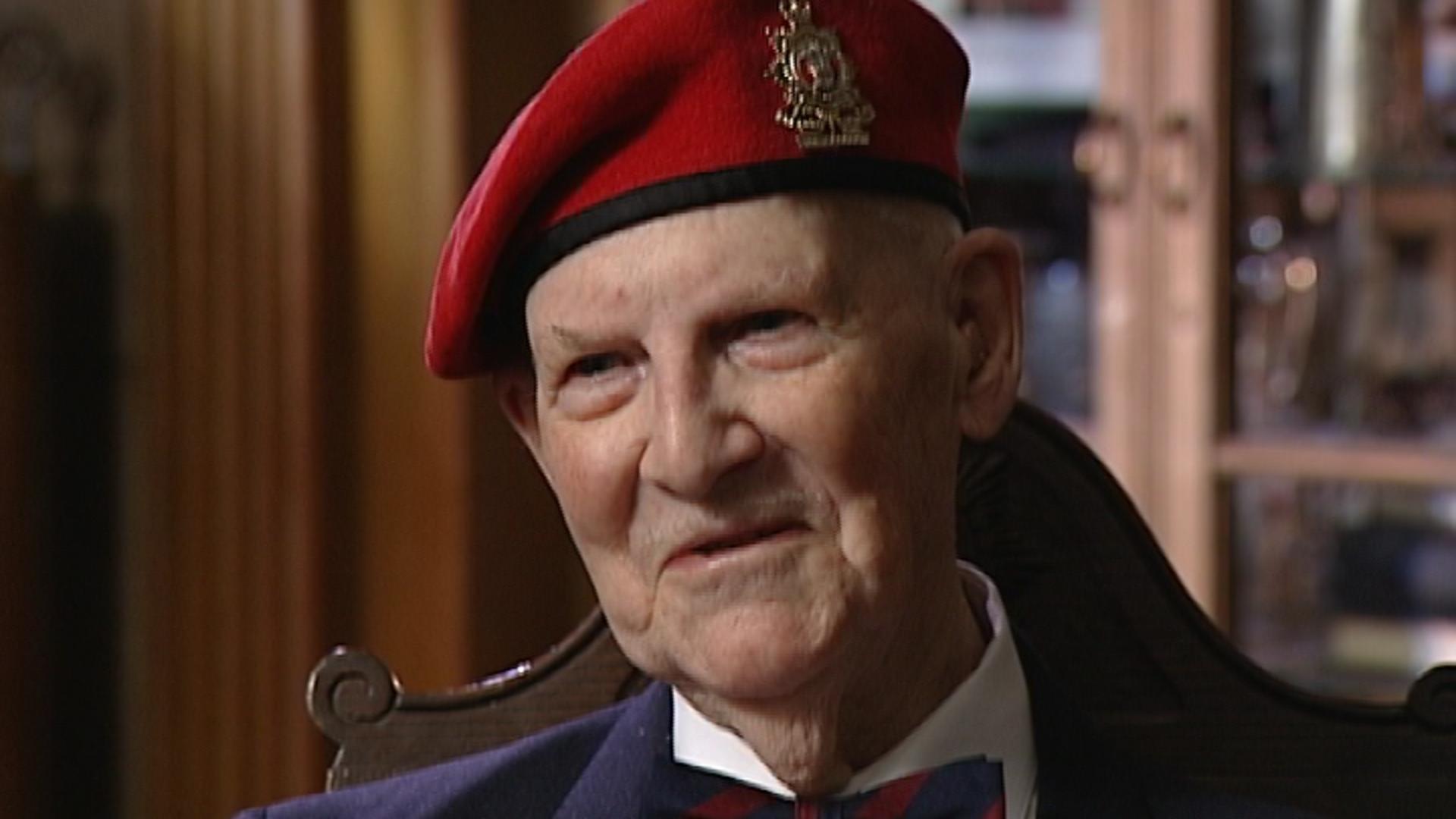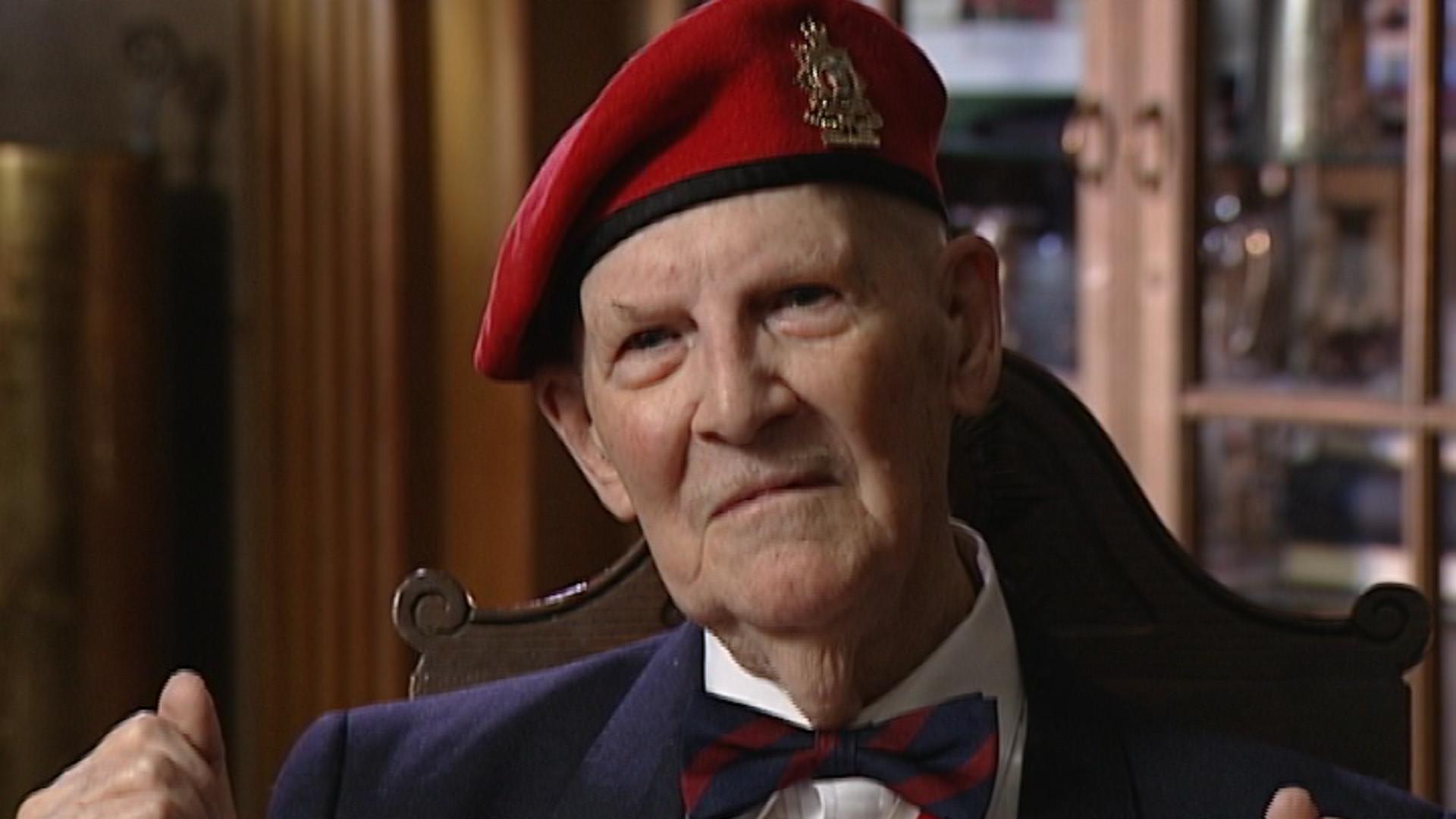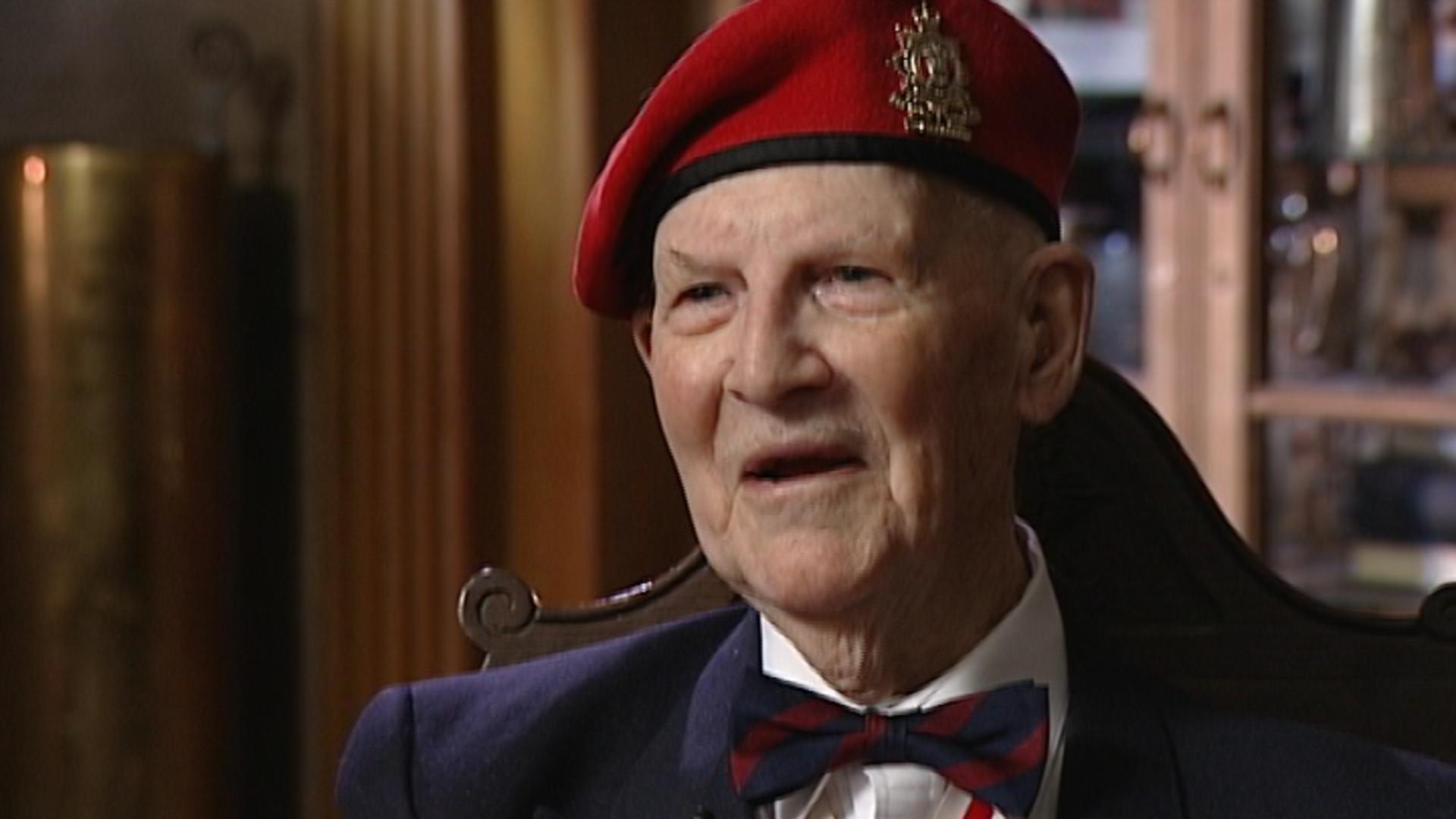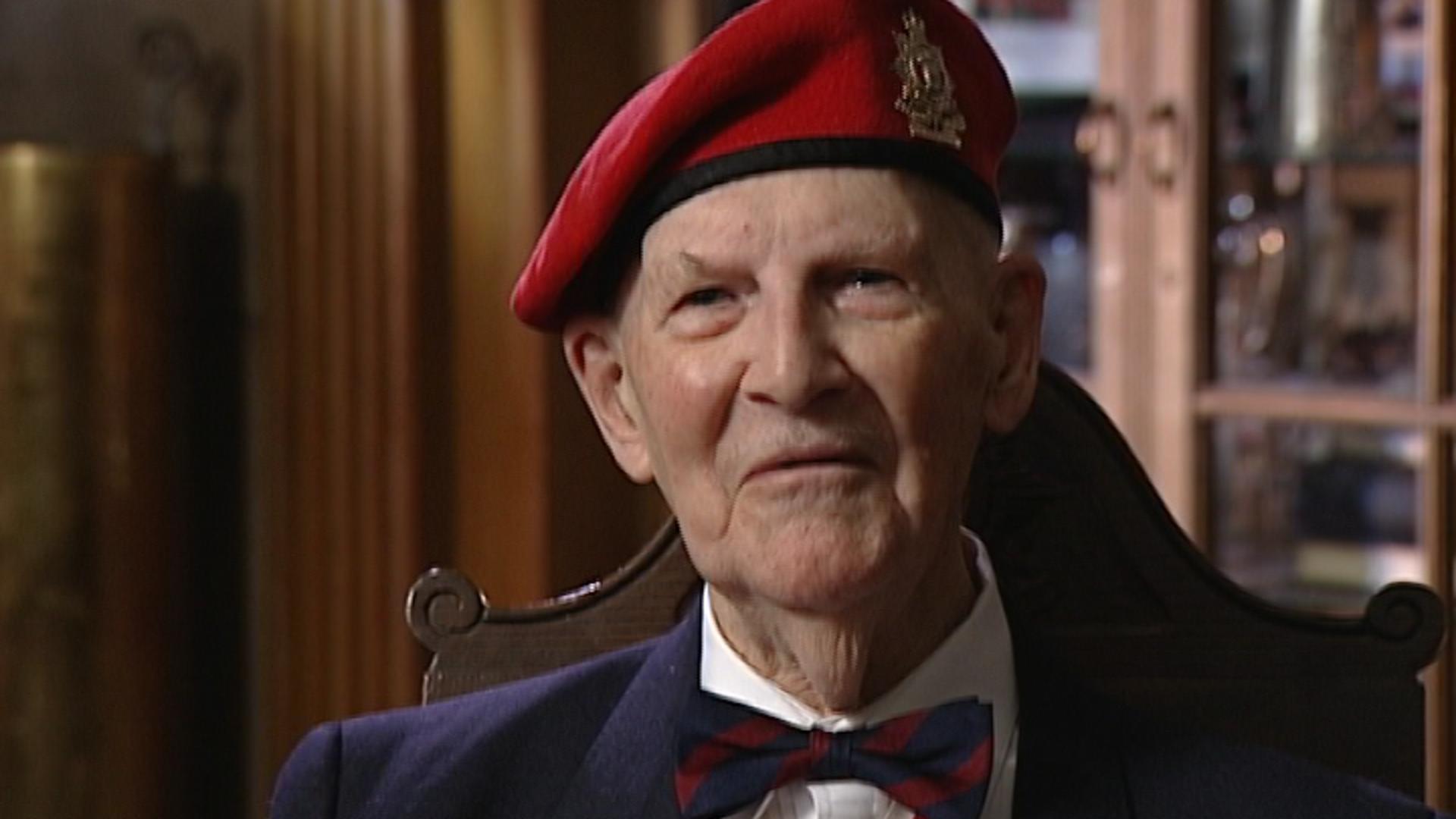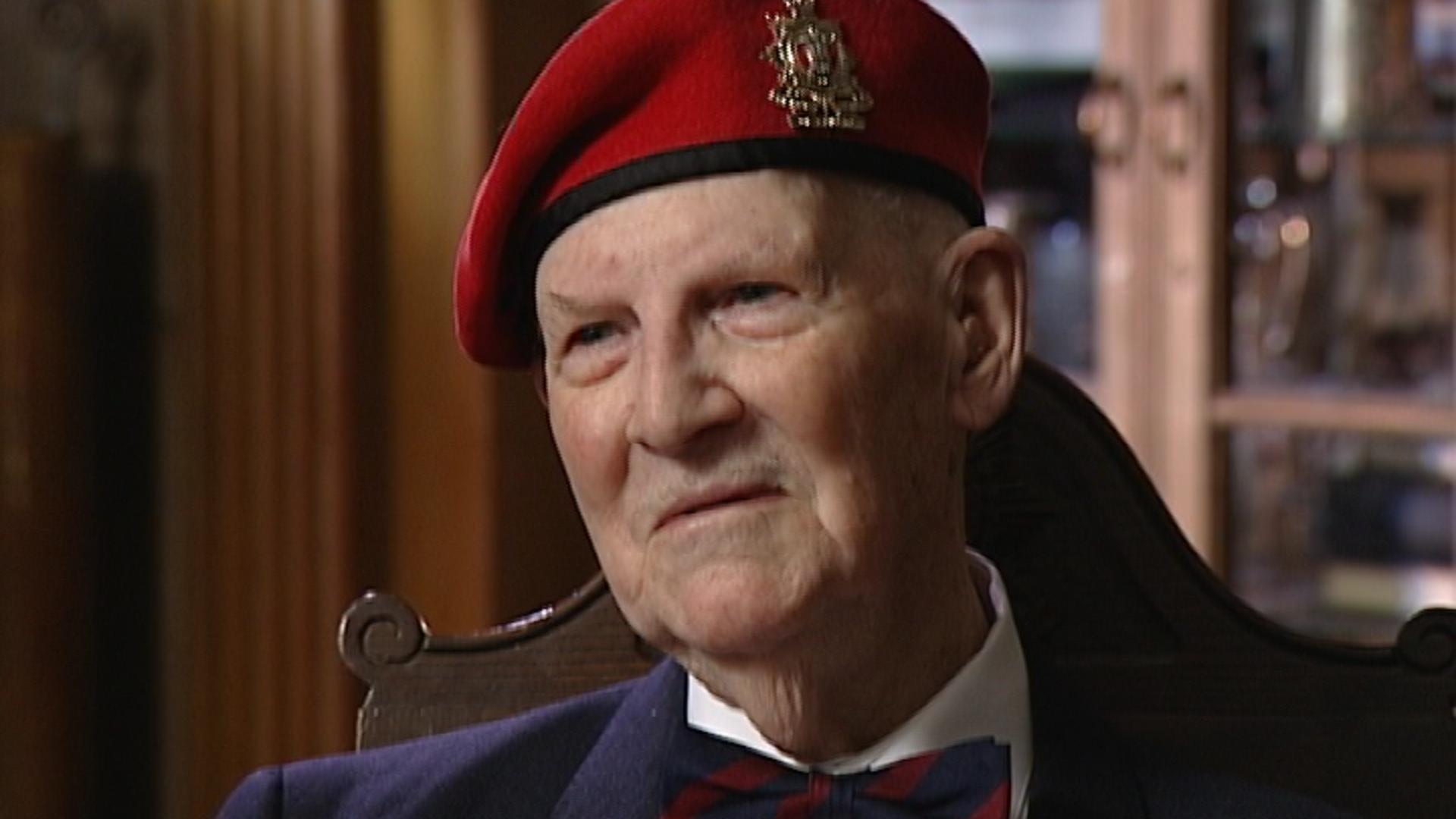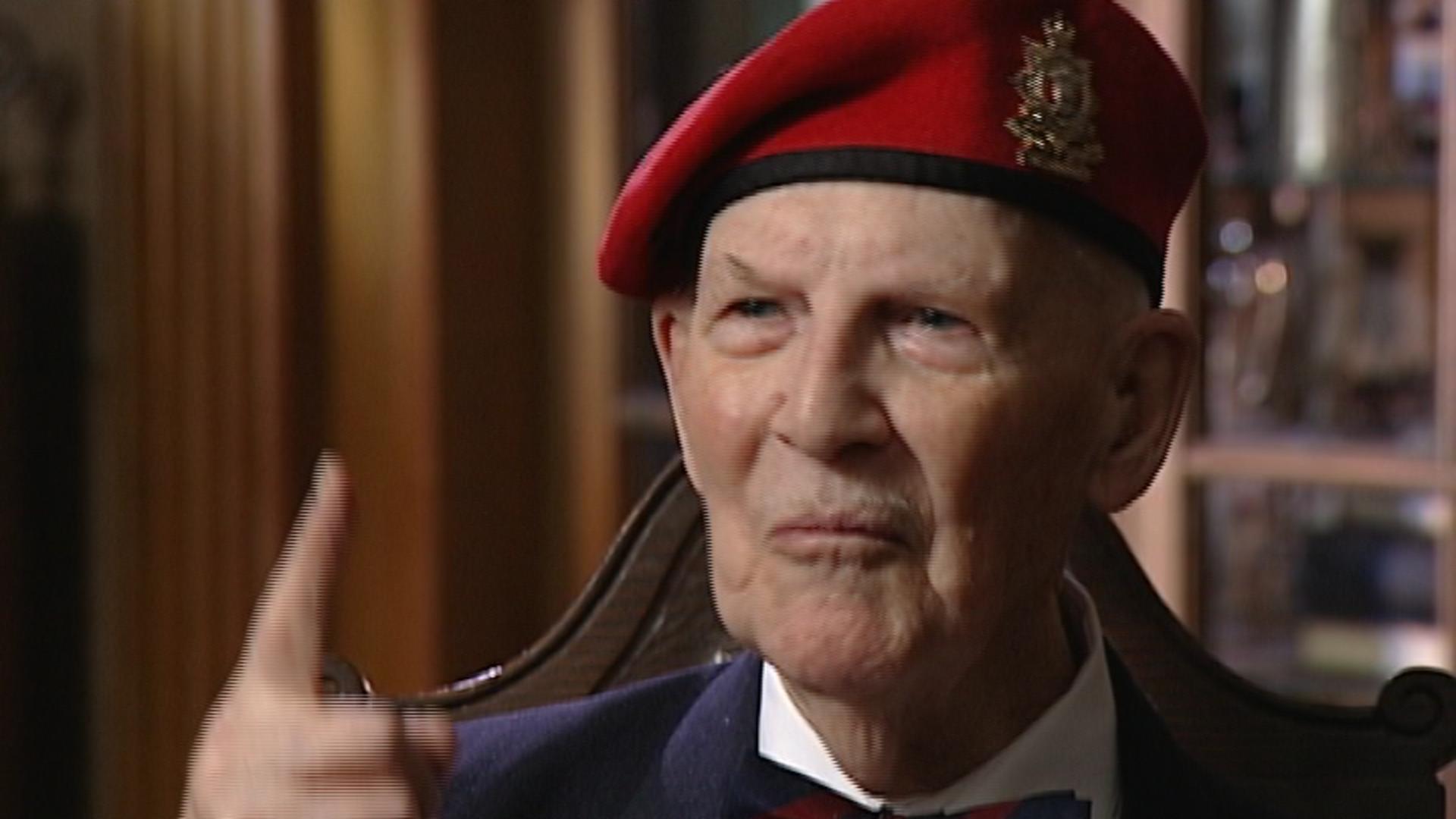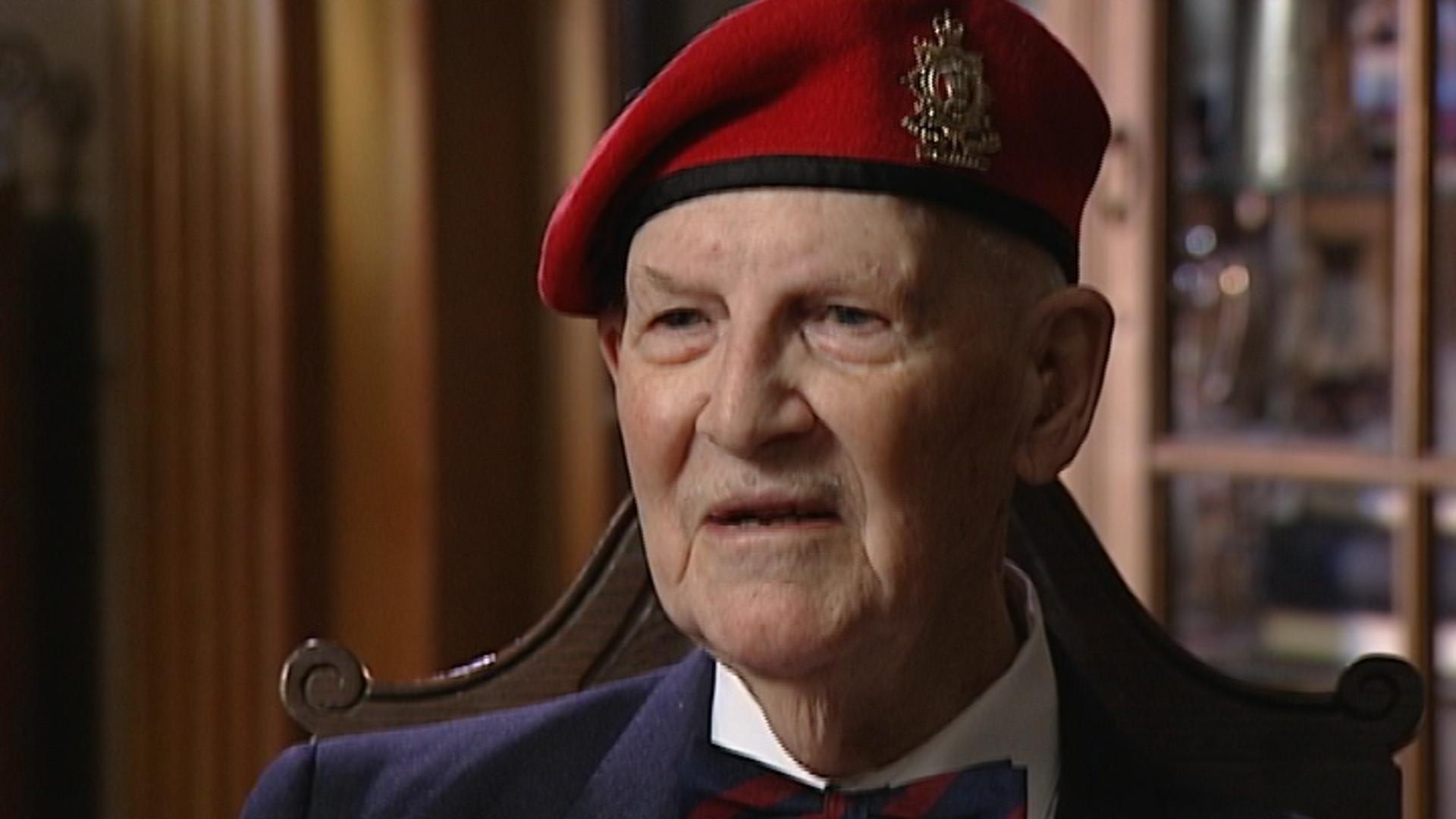Then they barricaded the whole camp,
shut down one day and the
big announcement on the PA system,
“All the Dieppe personnel out
into the parade ground.”
So we go out to our parade ground,
what the hell has happened?
Then we see about two hundred soldiers
marching down with their machine guns and
everything into our compound and
they ringed us and they put all these
machine guns in front of us and
they’re setting there with a madness.
So what the hell is happening,
they don’t tell us nothing.
Then their commander comes down
to read the riot act.
It seems that in the Battle of Dieppe that
some Germans were taken prisoner by
some company and they had their hands tied
behind their backs which was against rules,
well that’s true and they were shot.
So in reprisals, the Germans will be tying all
you guys up like this with ropes until
we feel that we have been compensated.
And now we got reprisals.
So from then on, from six o’clock in the
morning until nine o’clock at night we had to
go up and the guard tied us like
that with these creosote, the ropes that were
taken off our red cross parcels they used to
tie us and the creosote used to burn your
skin and they tied us like that until
nine o’clock at night.
And if you were caught trying
to undo them or get out of them,
now we had guards posted every
so often in the compound,
that’s what all these guards were for,
to keep an eye on us that
we couldn’t do anything and, of course,
you had to do everything like this and,
you know, go to the washroom.
They had a couple of our RAP guys,
stretcher bearers, who were released and
their job was to take us to the washroom.
This is this big latrine, eh.
We had to go there and
they had to clean us up and
that because we couldn’t do it our self.
We couldn’t reach.
They had the dirty job of doing that.
And we could only go two or three at a
time and the guard would check you and back.
After three months of going through this,
the German doctor decided that
we’re all going to be dead because
we have no lung expansion,
we have no exercise, couldn’t move and
we’re going to die of lung congestion so
they got to do something about it.
So they come up with these chains.
You see a pair in the museum,
there’s a pair in there of the actual
chains that we wore.
And you put these chains on,
they’re about that far apart.
You could put your hands in your pocket
and have your chains across here, eh.
And that give us room to manoeuvre so
we got the chains on at six in the morning
until nine at night.
Well, we could do a little more with the
chains and they still had the
guards on us but now as many.
And if you got caught without your
chains or unhooking your chains you got
beat up and sent to straff; bread and
water and everything else.



